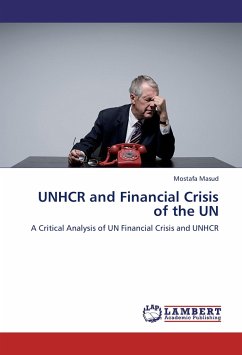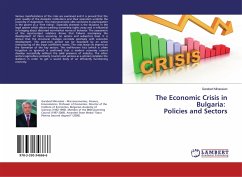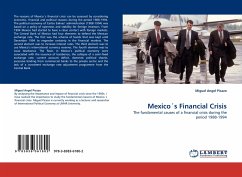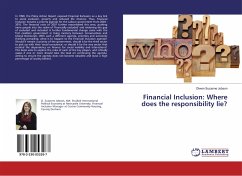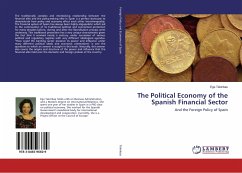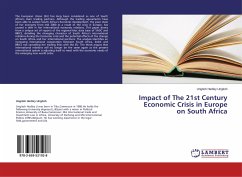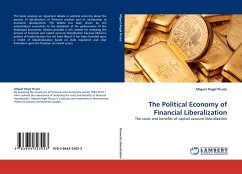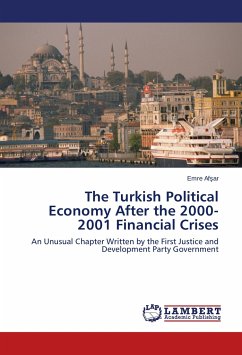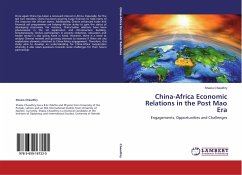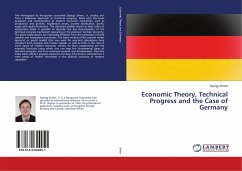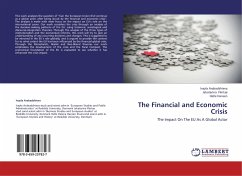
The Financial and Economic Crisis
The Impact On The EU As A Global Actor
Versandkostenfrei!
Versandfertig in 6-10 Tagen
32,99 €
inkl. MwSt.

PAYBACK Punkte
16 °P sammeln!
This work analyses the question of "Can the European Union (EU) continue as a global actor after being struck by the financial and economic crisis". The analysis is made with main focus on the impact on EU's role on the international scene. Our work considers the crisis through an analysis of the decision-making patterns of the EU, using historical, sociological and discourse-integration theories. Through the analysis of the three types of institutionalism and the economical reforms, this work will try to give an understanding of any occurring decisions and changes. This is suggested to be mir...
This work analyses the question of "Can the European Union (EU) continue as a global actor after being struck by the financial and economic crisis". The analysis is made with main focus on the impact on EU's role on the international scene. Our work considers the crisis through an analysis of the decision-making patterns of the EU, using historical, sociological and discourse-integration theories. Through the analysis of the three types of institutionalism and the economical reforms, this work will try to give an understanding of any occurring decisions and changes. This is suggested to be mirrored in the EU's role globally, and is argued to provide the context for to what extent the EU has been influenced by the financial global crisis. Through the Monetarists, Realist and Neo-liberal theories our work emphasises the development of the crisis and the Fiscal Compact. The economical foundation of the EU is evaluated to see whether it has enhanced the crisis impact.



